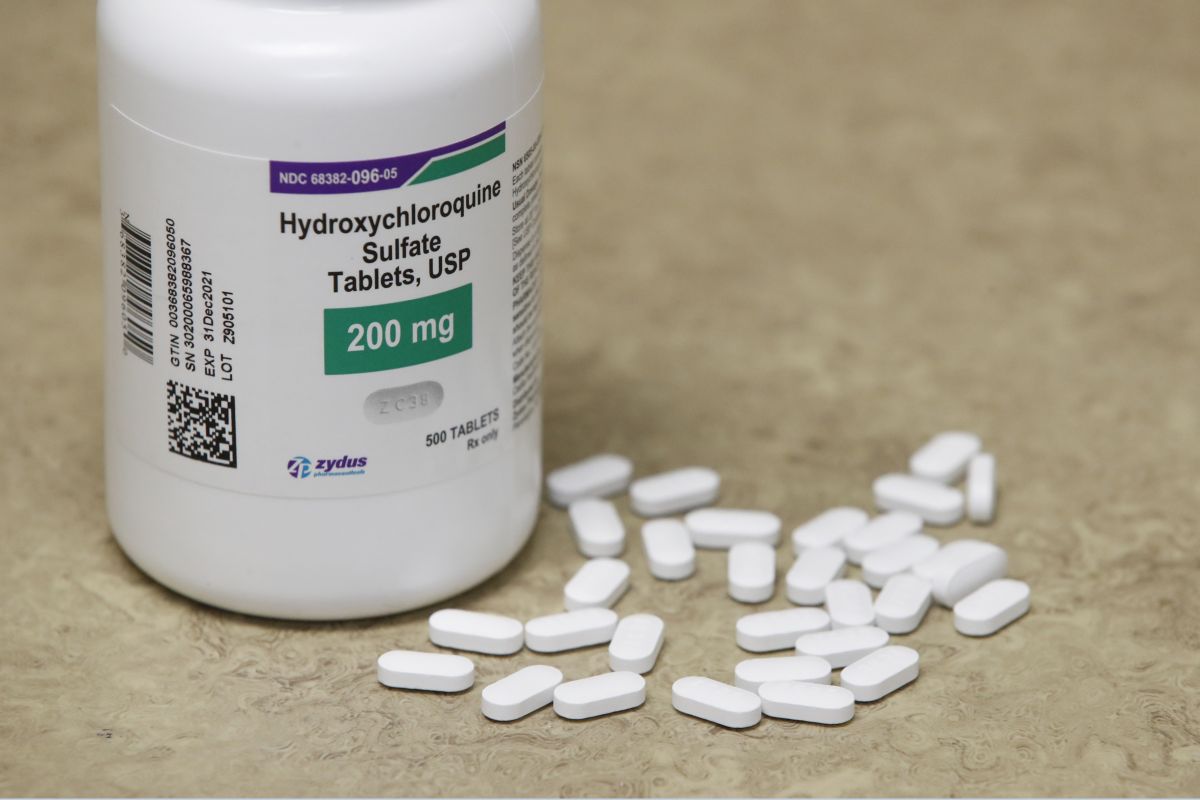India records 122 fresh COVID-19 cases
The total COVID-19 caseload of the country has risen to 4,50,26,261. These also include the JN.1 Covid variant cases.
The announcement came two days after the United States withdrew emergency use authorisations for both hydroxychloroquine and chloroquine.

A bottle and pills of Hydroxychloroquine as they sit on a counter at Rock Canyon Pharmacy in Provo, Utah. (Photo by GEORGE FREY / AFP)
The World Health Organization decided on Wednesday to halt trials of anti-malarial drug hydroxychloroquine as a potential treatment for COVID-19 patients, finding it did not reduce the mortality rate.
Doctor Ana Maria Henao Restrepo, from the WHO’s health emergencies programme, told a virtual press conference in Geneva that the anti-malarial drug was being withdrawn from its multi-country Solidarity Trial of potential treatments.
Advertisement
“The internal evidence from the Solidarity/Discovery Trial, the external evidence from the Recovery Trial and the combined evidence from these large randomised trials, brought together, suggest that hydroxychloroquine, when compared with the standard of care in the treatment of hospitalised COVID-19 patients, does not result in the reduction of the mortality of those patients,” she said.
Advertisement
The Solidarity Trial’s hydroxychloroquine arm is being stopped, on the basis of evidence showing it does not reduce mortality for hospitalised #COVID19 patients.
— World Health Organization (WHO) (@WHO) June 17, 2020
“Based on this analysis and on the review of the published evidence, the Executive Group of the Solidarity/Recovery Trial has met on two occasions and today we met with all the principal investigators.
“After deliberation, they have concluded that the hydroxychloroquine arm will be stopped from the Solidarity Trial.”
The announcement came two days after the United States withdrew emergency use authorisations for both hydroxychloroquine and chloroquine, two antimalarial drugs favoured by President Donald Trump to treat the new coronavirus.
Meanwhile, WHO plans to update its guidelines on treating COVID-19 patients to reflect results of a clinical trial that showed a cheap, common steroid could help save critically ill patients.
The Guardian reports, cheap steroid, British researchers believe can help save lives, should be used only for the most serious cases, WHO has said. Dr Tedros Adhanom Ghebreyesus said research was at last providing “green shoots of hope”.
The drug dexamethasone was shown to reduce death by about one-third in patients on ventilators and one-fifth in patients who require oxygen, according to initial findings, says Al Jazeera report.
Advertisement